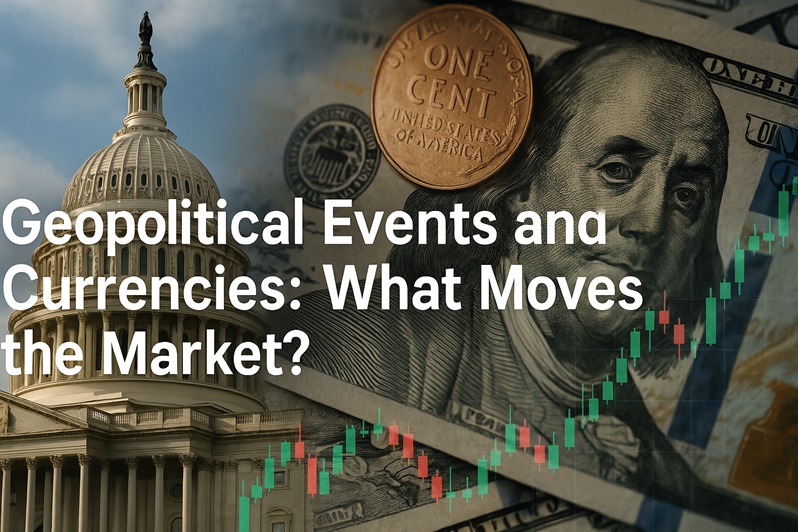
In the global financial system, currencies don’t move randomly. Behind every significant swing lies a combination of economic data, market sentiment, and often, geopolitical events. From elections and wars to trade agreements and sanctions, geopolitics has a profound influence on the foreign exchange market. Understanding these dynamics is essential for any trader who wants to anticipate market moves and protect their capital in uncertain times.
How Geopolitics Influences Currency Valuation
Geopolitical events impact investor confidence and perceptions of economic stability. When a country experiences political uncertainty or conflict, its currency often depreciates due to capital flight and reduced foreign investment. Conversely, stability and strong international relations can strengthen a currency by boosting investor trust.
For example, during periods of geopolitical tension, safe-haven currencies like the US Dollar (USD), Swiss Franc (CHF), and Japanese Yen (JPY) tend to rise as investors seek security. In contrast, the currencies of countries involved in or affected by the event may see sharp declines. The market’s reaction is driven not just by facts, but by expectations—how traders believe events will impact economic growth, interest rates, and central bank actions.
Key Events That Drive Forex Volatility
Elections, especially in major economies, often cause increased currency volatility. Uncertainty around policy changes, trade stances, and leadership outcomes can shake markets. Similarly, geopolitical conflicts—such as military tensions or diplomatic breakdowns—create sudden market reactions as investors reassess risk.
Trade agreements and tariffs are another crucial factor. When major trading partners adjust tariffs or renegotiate deals, the affected currencies can experience shifts based on expected impacts on exports and GDP. Sanctions, embargoes, or regulatory restrictions also affect national currencies, particularly when they target vital industries like oil, tech, or finance.
Even geopolitical speculation can influence the market. Rumors, news headlines, and social media coverage can spark reactions long before an official event occurs. Traders who monitor political calendars, government statements, and global news are better positioned to anticipate and react to sudden moves.
Risk Management in Uncertain Times
Traders must approach geopolitical risk with caution. Spikes in volatility can lead to slippage, widened spreads, and unexpected market gaps. A sound risk management plan is essential—including stop-loss orders, position sizing, and scenario planning.
It’s also valuable to use fundamental analysis alongside technical tools. While charts may show historical price behavior, they can’t predict a sudden geopolitical event. Staying informed and aligning trades with macroeconomic themes can help traders ride trends and avoid traps.
Safe-haven strategies, currency hedging, and reducing leverage during geopolitical uncertainty are all prudent steps. Ultimately, success comes from staying flexible and adapting quickly when the market reacts to political realities.
Conclusion
Geopolitical events are powerful drivers of currency markets. They influence everything from investor sentiment to trade flows and monetary policy expectations. While they introduce uncertainty, they also offer opportunities for informed, disciplined traders. By staying alert to global developments and using smart risk management, you can navigate volatile conditions and make geopolitical insight part of your trading edge.
FAQs
Do geopolitical events affect all currency pairs equally?
No, currencies directly tied to the event are most affected, while safe-havens may move in response to risk sentiment.
How can I stay informed about geopolitical risks?
Follow international news, economic calendars, and updates from central banks and political leaders.
Are geopolitical events more important than economic data?
In some cases, yes. Sudden political developments can override technical or economic trends.
Can I predict currency movement based on geopolitics?
You can anticipate possible reactions, but outcomes depend on market sentiment and timing.
What are safe-haven currencies?
These include the USD, JPY, and CHF—currencies that typically gain value in times of global uncertainty.
